Noni
How to submit an article:
- Registered users can submit any published journal article that has a unique DOI (Digital Object Identifier) name or link to Research Hub.
- For example, you can paste the full DOI link:
https://doi.org/10.1109/5.771073or just the DOI name:10.1109/5.771073into the field above and click submit. - The person who is first to submit a valid article to Research Hub will forever be credited for it, and every article submission earns you +6 Research Points.
Also known as: Morinda Citrifolia
Related Topics
Published research studies are articles that present the findings of original research that has undergone a peer-review process and has been made publicly available in scholarly journals, books or other media.

In vitro antibacterial activity of Morinda citrifolia extracts against eight pathogenic bacteria species
2024 Oct 30 PLOS One Obeng-Boateng F, Kpordze SW, Addy F
Experimental Study Campylobacter Antibacterial NoniMorinda citrifolia root extracts display significant antibacterial activity against various bacteria, with the highest impact against Campylobacter spp.
Study the Efficacy of Morinda Citrifolia in Polycystic Ovarian Syndrome (PCOS)
2024 Oct 10 African Journal of Biomedical Research Khatal DS
The study concluded that the treatment significantly improved the signs and symptoms of PCOS in BMI and had positive effects on objective parameters such as BMI.
Randomised Controlled Trial PCOS Noni
Anticancer and chemopreventive potential of Morinda citrifolia L. bioactive compounds: A comprehensive update
2024 Feb 15 Phytotherapy Research Kitic D, Miladinovic B, Randjelovic M, Szopa A, Seidel V, Prasher P, et al.
Systematic Review Anticancer NoniNoni fruit and its compounds demonstrate significant potential in cancer therapy by inducing apoptosis, arresting cell cycle, inhibiting angiogenesis, and modulating immune system.
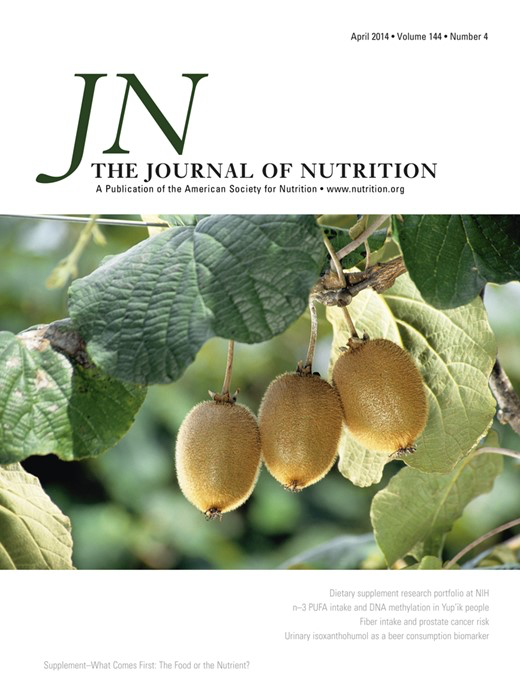
Is a Lower Dose of More Bioavailable Iron (18-mg Ferrous Bisglycinate) Noninferior to 60-mg Ferrous Sulfate in Increasing Ferritin Concentrations While Reducing Gut Inflammation and Enteropathogen Detection in Cambodian Women? A Randomized Controlled Noni
2023 Aug The Journal of Nutrition Fischer JAJ, Pei LX, Elango R, Hou K, Goldfarb DM, Karakochuk CD
Clinical Study Randomised Controlled Trial Iron DeficiencyA lower dose of iron amino acid chelate was not as effective as the standard iron salts dose in increasing ferritin levels in a predominantly iron-replete female Cambodian population.
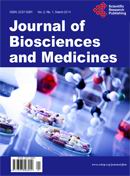
The Influence of Noni Fruit Juice on Immune System Function
2023 Jan Journal of Biosciences and Medicines West BJ, Uwaya A, Isami F, Tomida N, Swartz F, Deng S, et al.
Review Article Antioxidant Immunity NoniNoni fruit juice enhances immune system function, primarily by boosting natural killer cell activity and increasing interferon-gamma production, which promotes phagocytosis.
Research insights are moderated by the Research Hub team and offer an at-a-glance overview of interesting research findings.

2024 PLOS One
Morinda citrifolia root extracts display significant antibacterial activity against various bacteria, with the highest impact against Campylobacter spp.
Experimental Study Antibacterial Campylobacter
In vitro antibacterial activity of Morinda citrifolia extracts against eight pathogenic bacteria species
Obeng-Boateng F, Kpordze SW, Addy F

2024 Phytotherapy Research
Noni fruit and its compounds demonstrate significant potential in cancer therapy by inducing apoptosis, arresting cell cycle, inhibiting angiogenesis, and modulating immune system.
Systematic Review Anticancer
Anticancer and chemopreventive potential of Morinda citrifolia L. bioactive compounds: A comprehensive update
Kitic D, Miladinovic B, Randjelovic M, Szopa A, Seidel V, Prasher P, et al.

2023 The Journal of Nutrition
A lower dose of iron amino acid chelate was not as effective as the standard iron salts dose in increasing ferritin levels in a predominantly iron-replete female Cambodian population.
Clinical Study Iron Deficiency
Is a Lower Dose of More Bioavailable Iron (18-mg Ferrous Bisglycinate) Noninferior to 60-mg Ferrous Sulfate in Increasing Ferritin Concentrations While Reducing Gut Inflammation and Enteropathogen Detection in Cambodian Women? A Randomized Controlled Noni
Fischer JAJ, Pei LX, Elango R, Hou K, Goldfarb DM, Karakochuk CD

2023 Journal of Biosciences and Medicines
Noni fruit juice enhances immune system function, primarily by boosting natural killer cell activity and increasing interferon-gamma production, which promotes phagocytosis.
Review Article Antioxidant Immunity
The Influence of Noni Fruit Juice on Immune System Function
West BJ, Uwaya A, Isami F, Tomida N, Swartz F, Deng S, et al.
2022 Journal of Pharmaceutical Negative Results
Morinda citrifolia (Noni) exhibits potential therapeutic activities for treating central nervous system disorders by targeting mainly receptors, enzyme transporters, and has neuroprotective activity.
Review Article Neuroprotective
A comprehensive review on potential pharmacological activities of Morinda citrifolia Linn. for the treatment of central nervous system disorders
Asiya Begum, Vijayapandi Pandy, Jithendra Chimakurthy, Rama Rao Nadendla
Review Articles
Review articles summarise and critically evaluate the current state of research on a specific topic or field by synthesising multiple primary research studies.

Anticancer and chemopreventive potential of Morinda citrifolia L. bioactive compounds: A comprehensive update
2024 Feb 15 Phytotherapy Research Kitic D, Miladinovic B, Randjelovic M, Szopa A, Seidel V, Prasher P, et al.
Systematic Review Anticancer NoniNoni fruit and its compounds demonstrate significant potential in cancer therapy by inducing apoptosis, arresting cell cycle, inhibiting angiogenesis, and modulating immune system.

The Influence of Noni Fruit Juice on Immune System Function
2023 Jan Journal of Biosciences and Medicines West BJ, Uwaya A, Isami F, Tomida N, Swartz F, Deng S, et al.
Review Article Antioxidant Immunity NoniNoni fruit juice enhances immune system function, primarily by boosting natural killer cell activity and increasing interferon-gamma production, which promotes phagocytosis.

Canonical Chinese medicine formula Danzhi-Xiaoyao-San for treating depression: A systematic review and meta-analysis
2022 Apr Journal of Ethnopharmacology Wang XL, Feng ST, Wang YT, Zhang NN, Wang ZZ, Zhang Y
This systematic review and meta-analysis approved an efficient role of Danzhi-Xiaoyao-San (DXS) in improving depression in clinical randomized controlled trials.
Systematic Review Meta-Analysis Jia Wei Xiao Yao San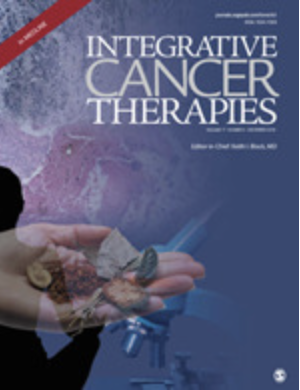
Efficacy and Safety of Morinda citrifolia L. (Noni) as a Potential Anticancer Agent
2022 Jan Integrative Cancer Therapies Chanthira Kumar H, Lim XY, Mohkiar FH, Suhaimi SN, Mohammad Shafie N, Chin Tan TY
Systematic Review Anticancer Noni CancerNoni, a medicinal plant, has illustrated diverse anticancer properties across different cancer models through numerous mechanisms including antitumor and immunomodulatory activities.
A comprehensive review on potential pharmacological activities of Morinda citrifolia Linn. for the treatment of central nervous system disorders
2022 Jan 01 Journal of Pharmaceutical Negative Results Asiya Begum, Vijayapandi Pandy, Jithendra Chimakurthy, Rama Rao Nadendla
Review Article Neuroprotective NoniMorinda citrifolia (Noni) exhibits potential therapeutic activities for treating central nervous system disorders by targeting mainly receptors, enzyme transporters, and has neuroprotective activity.
Clinical Trials
Clinical trials are research studies that involve people and are conducted to evaluate the safety and efficacy of new treatments or interventions, such as drugs, medical devices, or behavioural therapies.
Study the Efficacy of Morinda Citrifolia in Polycystic Ovarian Syndrome (PCOS)
2024 Oct 10 African Journal of Biomedical Research Khatal DS
The study concluded that the treatment significantly improved the signs and symptoms of PCOS in BMI and had positive effects on objective parameters such as BMI.
Randomised Controlled Trial PCOS Noni
Is a Lower Dose of More Bioavailable Iron (18-mg Ferrous Bisglycinate) Noninferior to 60-mg Ferrous Sulfate in Increasing Ferritin Concentrations While Reducing Gut Inflammation and Enteropathogen Detection in Cambodian Women? A Randomized Controlled Noni
2023 Aug The Journal of Nutrition Fischer JAJ, Pei LX, Elango R, Hou K, Goldfarb DM, Karakochuk CD
Clinical Study Randomised Controlled Trial Iron DeficiencyA lower dose of iron amino acid chelate was not as effective as the standard iron salts dose in increasing ferritin levels in a predominantly iron-replete female Cambodian population.
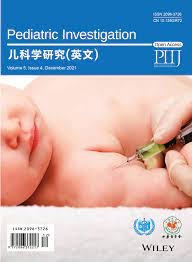
Safety and efficacy of Yupingfeng granules in children with recurrent respiratory tract infection: A randomized clinical trial
2022 Jun Pediatric Investigation Xu B, Li X, Hu S, Bao Y, Chen F, Chen Z, et al.
Yupingfeng (YPF) granules were noninferior to the active control drug pidotimod oral solution for the treatment of RRTI in children, and were superior to placebo, with a high safety profile.
Randomised Controlled Trial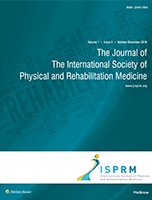
Evaluation of Morinda citrifolia (noni) fruit extract as a bone regenerative material in the treatment of periodontal intrabony osseous defects: Clinical and cone-beam computed tomography assessment
2021 Jan Journal of the International Society of Physical and Rehabilitation Medicine Sabu BS, Chandrashekar KT, Mishra R, Tripathi VD, Khatri H, Deo A
Randomised Controlled Trial Anti-Inflammatory Periodontitis NoniMorinda citrifolia fruit extract effectively supports bone regeneration and has anti-inflammatory properties in periodontal bone defects.
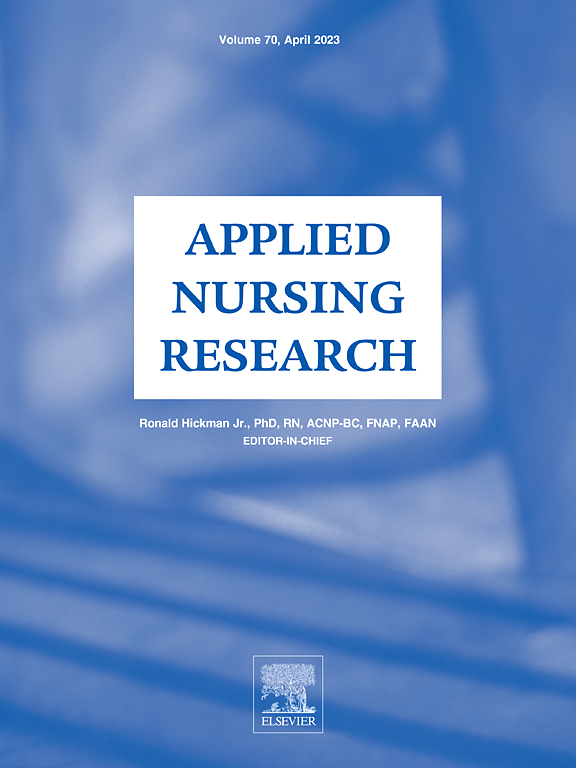
Effects of auricular acupressure on the quality of sleep and anxiety in patients undergoing cardiac surgery: A single-blind, randomized controlled trial
2020 Jun Applied Nursing Research Bang YY, Park H
We conclude that AA is a safe, effective, noninvasive, and low-risk nursing intervention that can improve sleep quality in patients after cardiac surgery.
Randomised Controlled Trial Anxiety Ear AcupunctureStudy Protocols
Published study protocols are detailed plans that outline the objectives, methodology, statistical analyses, and organisation of a research study that have been made publicly available for others to review and use as a reference.
Presentation Slides

Experimental Study
Morinda citrifolia root extracts display significant antibacterial activity against various bacteria, with the highest impact against Campylobacter spp.
Obeng-Boateng F, Kpordze SW, Addy F

Systematic Review
Noni fruit and its compounds demonstrate significant potential in cancer therapy by inducing apoptosis, arresting cell cycle, inhibiting angiogenesis, and modulating immune system.
Kitic D, Miladinovic B, Randjelovic M, Szopa A, Seidel V, Prasher P, Sharma M, Fatima R, Arslan Ateşşahin D, Calina D, Sharifi‐Rad J

Clinical Study
A lower dose of iron amino acid chelate was not as effective as the standard iron salts dose in increasing ferritin levels in a predominantly iron-replete female Cambodian population.
Fischer JAJ, Pei LX, Elango R, Hou K, Goldfarb DM, Karakochuk CD

Review Article
Noni fruit juice enhances immune system function, primarily by boosting natural killer cell activity and increasing interferon-gamma production, which promotes phagocytosis.
West BJ, Uwaya A, Isami F, Tomida N, Swartz F, Deng S, Cox-Lovesy B

Review Article
Morinda citrifolia (Noni) exhibits potential therapeutic activities for treating central nervous system disorders by targeting mainly receptors, enzyme transporters, and has neuroprotective activity.
Asiya Begum, Vijayapandi Pandy, Jithendra Chimakurthy, Rama Rao Nadendla

Systematic Review
Noni, a medicinal plant, has illustrated diverse anticancer properties across different cancer models through numerous mechanisms including antitumor and immunomodulatory activities.
Chanthira Kumar H, Lim XY, Mohkiar FH, Suhaimi SN, Mohammad Shafie N, Chin Tan TY

Randomised Controlled Trial
Morinda citrifolia fruit extract effectively supports bone regeneration and has anti-inflammatory properties in periodontal bone defects.
Sabu BS, Chandrashekar KT, Mishra R, Tripathi VD, Khatri H, Deo A

Randomised Controlled Trial
Group acupuncture was noninferior to individual acupuncture for treating cancer pain and was superior in many health outcomes. Group acupuncture is more cost-effective for alleviating cancer pain and should be considered for implementation trials.
Erica Nicole Reed, Jessa Landmann, Devesh Oberoi, Katherine-Ann L. Piedalue, Peter Faris, Linda E. Carlson
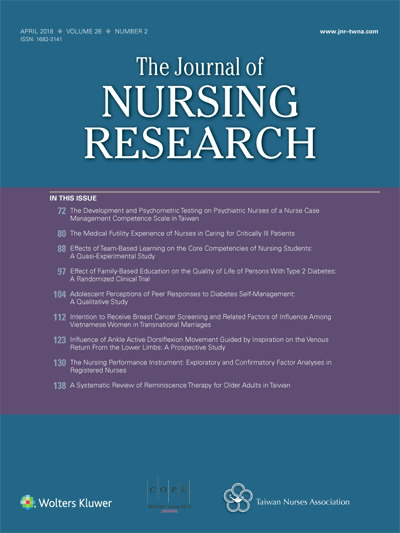
Systematic Review
Aromatherapy enhances physio-psychological well-being in postpartum women.
TSAI SS, WANG HH, CHOU FH

Clinical Study
Traditional Chinese medical prescriptions showed a correlation with pattern diagnosis in the treatment of systemic lupus erythematosus.
Liu CY, Wu WH, Huang TP, Lee TY, Chang HH
Executive Summary
Write an executive summary in the form of a blog article on the topic of "Research into Chinese medicine treatment for Noni" summarising the research below and using language that can be easily understood by patients and avoiding medical jargon using a professional and caring tone of voice.
Write an executive summary in the form of a blog article on the topic of "Researched Chinese medicine treatments for Noni" summarising the research below in an objective and easy to understand way, and using language that can be easily understood by patients. Group the article into Chinese medicine treatments first, followed by nutrition and other treatments. Avoid using medical jargon and use a professional and caring tone of voice.
Write me a concise but easy to understand executive summary on the topic of "Chinese medicine treatments for Noni" based on the following research that I will give you. Your summary should be 2 paragraphs long in Australian English spelling and include references to the studies.
A Experimental Study published in 2024 in the journal PLOS One found that Morinda citrifolia root extracts display significant antibacterial activity against various bacteria, with the highest impact against Campylobacter spp. The study investigates the antibacterial properties of various forms of Morinda citrifolia (root, leaf, and fruit- fresh, dried, and fermented). These were extracted through distilled water and varied concentrations of ethanol(60%, 80%, 100%). The antibacterial assessments were conducted using the agar well diffusion method, utilizing Ciprofloxacin as a positive control. While all forms of the plant showed some degree of antibacterial performance, the root extracts were found to have the most significant influence. The analysis of the results reveals a variance in antibacterial activity amongst the different extracts and the concentration of the solvents used. Among the solvents, the 100% ethanol extracts showed the most significant zones of inhibition. Certain bacteria, such as Enterococcus faecium, Campylobacter spp., and Bacillus cereus, were found to be more sensitive to the plant extracts. In contrast, Shigella spp. and Klebsiella spp. demonstrated resistance to most of the extracts. The study concludes a promising potential for antibacterial applications of M. citrifolia extracts.
A Systematic Review published in 2024 in the journal Phytotherapy Research found that Noni fruit and its compounds demonstrate significant potential in cancer therapy by inducing apoptosis, arresting cell cycle, inhibiting angiogenesis, and modulating immune system. In this study, a systematic review was put forth to scrutinize the therapeutic effectiveness of Morinda citrifolia L., commonly known as Noni, specifically looking into its effects on various forms of cancer. The review employed an extensive search of various scientific databases to gather relevant literature. This included both in vitro and in vivo studies, as well as clinical trials, specifically focusing on the outcomes of Noni fruit and its phytoconstituents - anthraquinones, flavonoids, sugar derivatives, and neolignans - on cancer. A carefully structured keyword and criteria search ensured a robust collection and analysis of data. The plethora of studies compiled point out to Noni's complex role in cancer therapy, underlining its various bioactive elements and their methods of activity. Significant anticancer and chemopreventive potential of Noni was observed, establishing it as potentially a safe and effective option in cancer prevention and treatment.
A Clinical Study published in 2023 in the journal The Journal of Nutrition found that A lower dose of iron amino acid chelate was not as effective as the standard iron salts dose in increasing ferritin levels in a predominantly iron-replete female Cambodian population. The research used a double-blind, randomized placebo-controlled noninferiority trial conducted in Cambodia. Participating nonpregnant women, aged 18-45, were randomly assigned either 60mg ferrous sulfate, 18mg ferrous bisglycinate or a placebo for 12 weeks. Baseline and 12-week post blood and fecal samples were collected from the participants and used to measure ferritin and fecal calprotectin levels as well as to detect the presence of enteropathogens. The study found that mean ferritin concentration was higher at 12 weeks in those receiving ferrous sulfate dose compared to those receiving a lower dose of ferrous bisglycinate and a placebo. No significant changes were observed across the groups in terms of fecal calprotectin concentrations or detection of enteropathogens. Therefore, it was concluded that the 18mg dose of ferrous bisglycinate was not as effective as the 60mg ferrous sulfate dose in increasing ferritin concentrations.
A Review Article published in 2023 in the journal Journal of Biosciences and Medicines found that Noni fruit juice enhances immune system function, primarily by boosting natural killer cell activity and increasing interferon-gamma production, which promotes phagocytosis. The research was conducted using several human, animal, and in vitro studies to gain insight into the immunomodulatory effects of noni fruit juice. They observed the impact on natural killer cell activity and monitored interferon-gamma production to assess improvements in immune function. Further investigation was carried out to identify how noni influences this process, with a focus on kinase 1/2, protein kinase B, and nuclear factor-kappa-beta signaling. In addition, they carried out trials to evaluate the antioxidant properties of noni juice. The studies showed that noni juice significantly enhances the immune system's function. This was evidenced by an increase in natural killer cell activity, which likely contributes to improved health outcomes and survival times as seen in previous case reports. Furthermore, they saw an increase in interferon-gamma production, known to boost natural killer cell activity and phagocytosis. They also discovered that noni promotes regulatory cytokine expression, which supports immune response. Additionally, noni juice demonstrated considerable antioxidant properties, implying a positive effect on oxidative status, a key player in immune function.
A Review Article published in 2022 in the journal Journal of Pharmaceutical Negative Results found that Morinda citrifolia (Noni) exhibits potential therapeutic activities for treating central nervous system disorders by targeting mainly receptors, enzyme transporters, and has neuroprotective activity. The research involved gathering existing scholarly literature across databases such as ResearchGate, Medline, and Wikipedia. It focused on the impact of the Noni plant on receptors, enzyme transporters, and the various methods for evaluating CNS disorders. The antidepressant effects of the Morinda citrifolia fruit were assessed in vitro using Monoamine Oxidase (MAO) A and B bioassays. The antipsychotic activity was determined by measuring the degree of inhibition of dopaminergic receptors by the Methanolic extract of Noni. In the discussion of the results, the findings suggested that Morinda citrifolia fruit has potential therapeutic benefits. The Noni fruit appears to work synergistically due to its constituent active compounds that inhibit MAOA and MAOB enzymes, displaying antidepressant activity. Moreover, it showed an antipsychotic activity attributed to the Methanolic extract of Noni inhibiting dopaminergic receptors. Other notable activities include anti-craving for alcohol dependence, judged by CPP test, anxiolytic activity exhibited by the administration of benzodiazepine and MMC in mouse models, and also neuroprotective ability by reducing brain impairment caused by reperfusion injury.
A Systematic Review published in 2022 in the journal Integrative Cancer Therapies found that Noni, a medicinal plant, has illustrated diverse anticancer properties across different cancer models through numerous mechanisms including antitumor and immunomodulatory activities. A systematic review was undertaken to compile scientific evidence on the anticancer properties of Noni. The process involved the use of predefined search terms across five electronic databases - MEDLINE, CENTRAL, LILACS, Web of Science, and EBSCOHost. As a result, 51 clinical and preclinical studies, of which 41 were efficacy and 10 safety studies, were used for this review. The results of this review demonstrated that Noni exhibited various anticancer properties across differing cancer models. These effects were undertaken through multiple mechanisms ranging from antitumor, antiproliferative, and pro-apoptotic to antiangiogenesis, antimigratory, anti-inflammatory, and immunomodulatory activities. This underscores the potential value of Noni as a medicinal plant in cancer treatment.
A Randomised Controlled Trial published in 2021 in the journal Journal of the International Society of Physical and Rehabilitation Medicine found that Morinda citrifolia fruit extract effectively supports bone regeneration and has anti-inflammatory properties in periodontal bone defects. This study randomized twenty patients who required periodontal regenerative therapy into two groups - an experimental group and a control group. For the control group, open flap debridement alone was used while in the experimental group, the application of Morinda citrifolia fruit extract was coupled with open flap debridement. Clinical aspects such as the gingival index, probing depth of pockets, and relative attachment level were assessed, along with the quantity of bone fill using cone-beam computed tomography at the beginning and after six months. The use of Morinda citrifolia fruit extract in the experimental group resulted in a significant reduction in probing pocket depth and increase in relative attachment level. Furthermore, the extract promoted a higher rate of bone fill in the experimental group compared with the control group, suggesting efficiency in the treatment of intraosseous defects. Additionally, the extract showcased some anti-inflammatory effects, amplifying its potential therapeutic uses.
A Randomised Controlled Trial published in 2020 in the journal Evidence-Based Complementary and Alternative Medicine found that Group acupuncture was noninferior to individual acupuncture for treating cancer pain and was superior in many health outcomes. Group acupuncture is more cost-effective for alleviating cancer pain and should be considered for implementation trials. Biweekly acupuncture therapy offered in the group setting for 6 weeks, delivered for half the cost of individual acupuncture, was as effective as individual acupuncture for reducing cancer-related pain interference and severity and was superior to individual acupuncture in improving sleep quality, fatigue, and psychological distress. Group acupuncture may be an effective treatment option for patients who may otherwise be unable to afford it due to relatively high costs and the lack of universal coverage for acupuncture treatment. Where possible, cancer centers and practitioners should consider offering acupuncture in group-based settings, rather than individually, for routine cancer pain treatments as a more cost-effective delivery model.
A Systematic Review published in 2019 in the journal Journal of Nursing Research found that Aromatherapy enhances physio-psychological well-being in postpartum women. This systematic review encompassed 15 studies conducted in Iran, England, and the United States, involving 2,131 postpartum participants. The research focused on evaluating aromatherapy's effects on various aspects of postpartum health. Aromatherapy interventions, primarily utilizing lavender and citrus aurantium essential oils, demonstrated positive outcomes. These included relief from nipple fissure pain, improved episiotomy recovery, reduced pain and nausea after cesarean section delivery, and enhanced sleep quality. Additionally, aromatherapy showed potential in positively influencing psychological health, particularly in reducing anxiety. Lavender oil emerged as the most impactful essential oil. While promising, further comprehensive studies are needed to establish aromatherapy as a validated therapy for postpartum women.
A Clinical Study published in 2014 in the journal Complementary Therapies in Medicine found that Traditional Chinese medical prescriptions showed a correlation with pattern diagnosis in the treatment of systemic lupus erythematosus. In the methodology, clinical data encompassing patterns and prescriptions from the electronic medical records of patients with lupus at a medical center were gathered and processed. A specific coding system, termed the B-code, was used to encode patterns and prescriptions, offering a platform for processing and statistical analysis. Nonlinear canonical correlation analysis was then performed to investigate the connection between the patterns and prescriptions. Regarding the results, from the 261 valid patient visits collected, a total of 46 patterns and 193 prescriptions were encoded into 57 B-codes. Yin, Vacuity, Heat, and Dampness were the most frequently observed B-codes both in patterns and prescriptions. Anemarrhena, Phellodendron, and Rehmannia Pill, along with Miltiorrhizae Radix, were identified as the most frequently used formula and herb, respectively. The most effective variable sets correlating the patterns and prescriptions were Water-rheum, kidney, and stasis. This suggests a rationale for pattern differentiation and the principle of treatment for systemic lupus erythematosus.
Moderation Tools
Topic
Sign In
Users not signed in are limited to viewing the 5 most recent items of content.